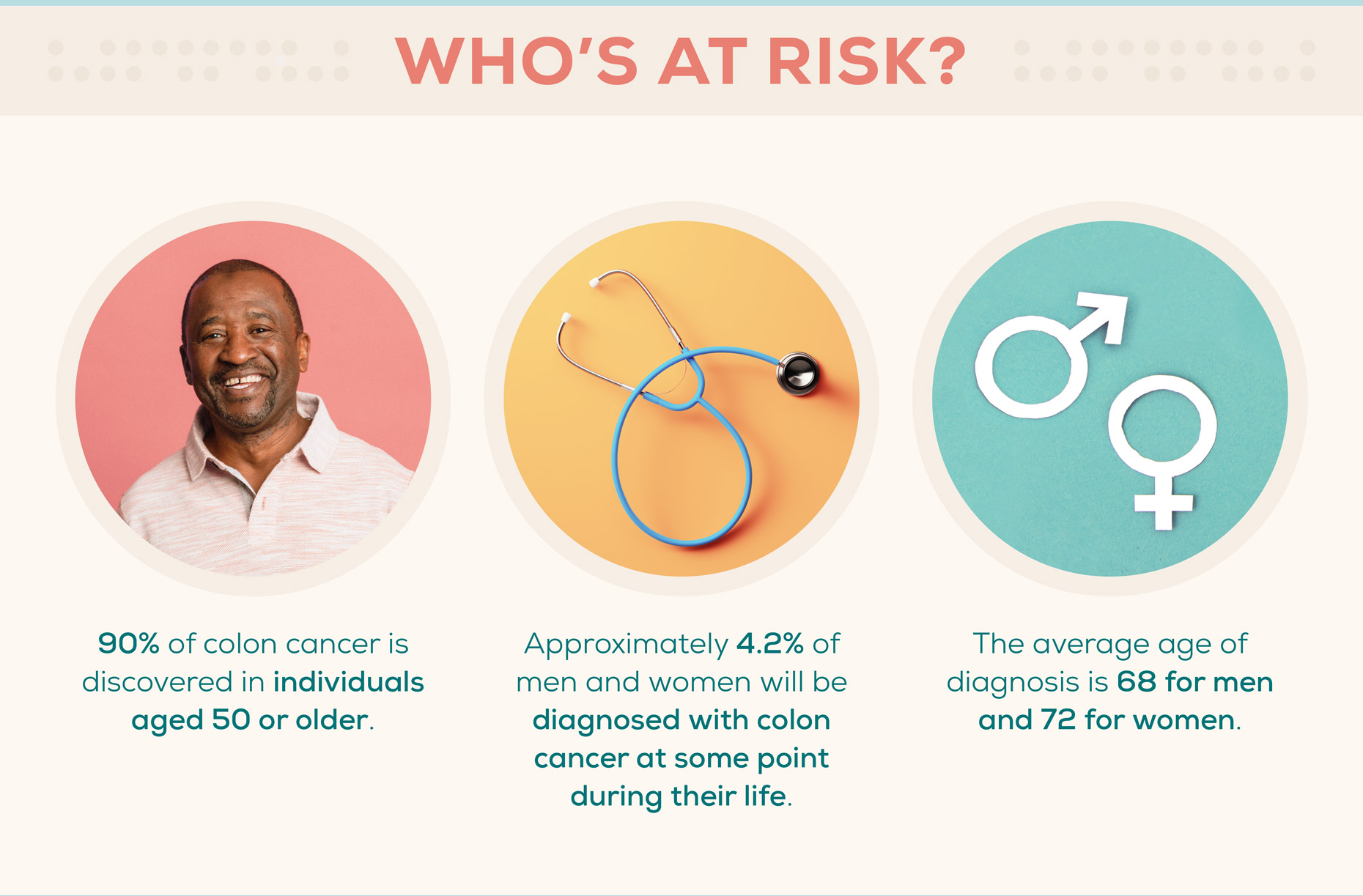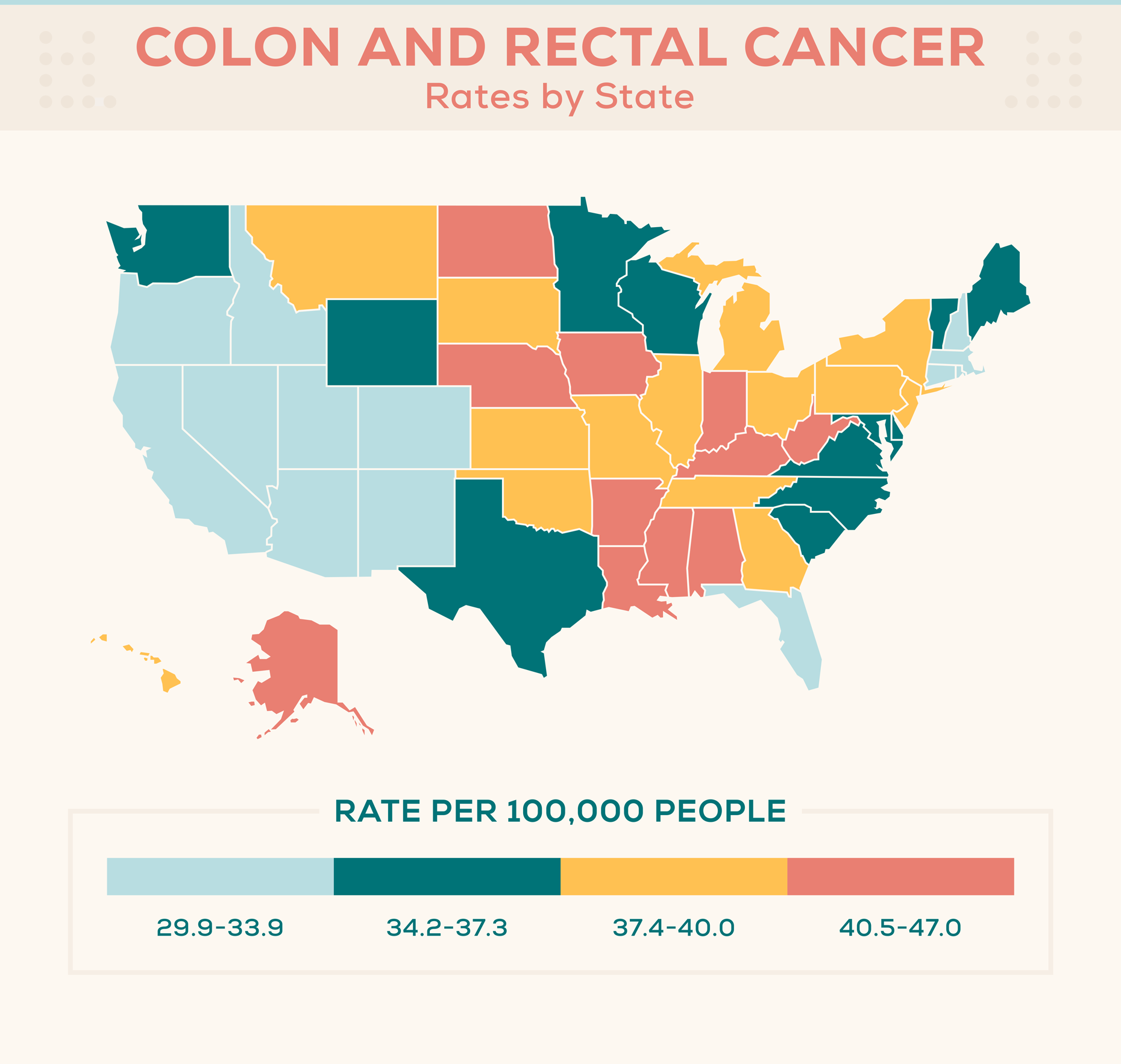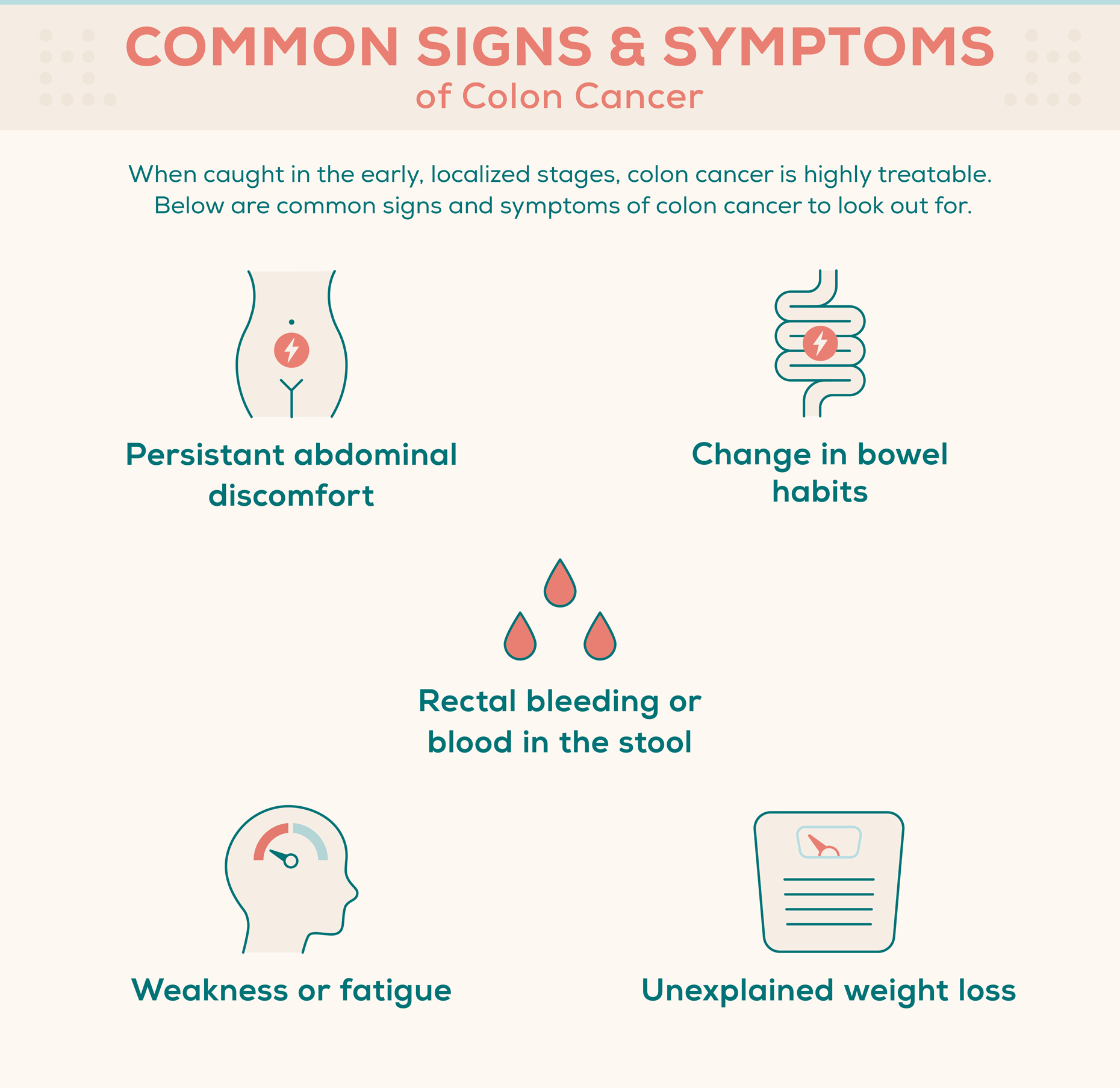
24 colon cancer statistics to know in 2020: risk factors, diagnosis, and survival
Colorectal cancer is cancer that occurs in the colon or rectum and is sometimes referred to as colon cancer, for short. Colorectal cancer is the third most common cancer diagnosed in both men and women in the United States. Despite it being the third leading cause of cancer-related deaths for both men and women, the death rate from colon cancer continues to drop. This can likely be attributed to an increased emphasis on screening and early detection, as well as advances in treatment. As a result, there are now more than 1.5 million survivors of colorectal cancer in the United States.
While anyone can develop colon cancer, it’s most commonly seen in adults over the age of 50. Reducing your risk of colon cancer, and increasing your likelihood of survival if affected, starts with early detection and education. Read on or skip to our infographic to get the statistics behind those at risk for colon cancer and recovery rates.
Table of Contents:
Risk Factors
A person’s family history, ethnicity, and age can put them at higher risk for colon cancer. While anyone can get colon cancer, it is most common among Black individuals, men, and those over the age of 50.
Colon Cancer Statistics by Age

- The average age for men to be diagnosed with colon cancer is 68. (American Society of Clinical Oncology)
- The average age of diagnosis for women is 72. (American Society of Clinical Oncology)
- 90% of colon cancer cases are found in individuals aged 50 or older. () (Centers for Disease Control and Prevention: Colorectal (Colon) Cancer)
- Colon cancer is increasing in younger populations. The number of cases diagnosed in individuals younger than age 50 increased from 6% in 1990 to 11% in 2013. (American Cancer Society)
Colon Cancer Statistics by Sex
- Colorectal cancer (CRC) is an illness strongly influenced by sex and gender, with mortality rates in males higher than females. (National Center for Biotechnology Information, U.S. National Library of Medicine)
- The lifetime risk of developing colorectal cancer is about 4.4% for men and 4.1% for women. (American Cancer Society)
- The rate of new cases of colorectal cancer is about 38.2 per 100,000 men and women each year. (National Cancer Institute)
Colon Cancer Statistics by Race and Ethnicity
- Colorectal cancer incidence and mortality rates are highest among Black people. (Colorectal Cancer Alliance)
- From 2009–2013, colorectal cancer rates among Black people were about 20% higher than whites. (Colorectal Cancer Alliance)
- Colorectal cancer death rates are 40% higher among Black people than White people. (Colorectal Cancer Alliance)

Diagnosis
A cancer’s stage is critical for determining treatment options and assessing prognosis. Those who are able to identify colorectal cancer sooner can reduce the risk of cancer cells spreading to different areas of the body, and can increase their chance of recovery.
Regular screening is essential for early detection, but it’s also important to pay attention to your body. If you experience unusual symptoms such as bleeding from the rectum, abdominal discomfort, blood in the stool, dark or black stools, or any change in bowel habits, it is recommended you see your healthcare provider.
- In 2020 alone, it is estimated that there will be 147,950 new cases of colon cancer. (National Cancer Institute)
- People with a first-degree relative (parent, sibling, or children) who have had colorectal cancer are two to four times more likely to develop this cancer compared to those without a family history. (American Cancer Society)
Stage of Diagnosis
- 39% of colorectal cancer patients are diagnosed with localized-stage disease, which means the cancer has grown into the wall of the colon or rectum, but has not invaded nearby tissue. (American Cancer Society)
- 35% of colorectal cancer patients are diagnosed with regional-stage disease, which indicates that the cancer has spread beyond the wall of the colon or rectum and has invaded nearby tissue or spread to lymph nodes. (American Cancer Society)
- 21% of colorectal cancer patients are diagnosed with distant-stage disease, meaning the cancer has spread to other parts of the body such as the liver or lungs. (American Cancer Society)
Survival
Treatment for colorectal cancer has advanced over the past several decades due to improvements in imaging, surgical techniques, and chemotherapy. That said, millions of people are still affected by colon cancer each year — it’s estimated that 53,200 individuals will succumb to colorectal cancer this year. However, treatment outcomes are influenced by tumor characteristics and stage at diagnosis. With this in mind, it’s best to get screened regularly for colon cancer, as this can help identify precancerous polyps (abnormal growths) in the colon or rectum or find colorectal cancer early when treatment may be more successful.
- There are now more than 1.5 million survivors of colorectal cancer in the United States. (American Cancer Society)
- The five-year relative survival rate, the percentage of people who will be alive 5 years after diagnosis not including those who die from other diseases, is 64.6%. (National Cancer Institute)
- The five-year relative survival rate for localized colon cancer is 90%. (American Cancer Society)
- The five-year relative survival rate for regional colon cancer is 71%. (American Cancer Society)
- The five-year survival rate for distant colon cancer is 14%. (American Cancer Society)
- Colorectal cancer accounts for 8.8% of all cancer deaths. (National Cancer Institute)
Colon Cancer Screening

Regular screening starting at age 50 is key for colorectal cancer prevention. However, you may need to begin screening earlier if you have a family history of colon cancer or have an inflammatory bowel disease such as Crohn’s disease or ulcerative colitis.
- When caught in the early localized stage, colorectal cancer is highly treatable. That said, regular colonoscopies are essential for early detection, treatment, and recovery. (National Cancer Institute)
- The percentage of individuals (ages 50 to 75) in the U.S. who are up-to-date with colorectal screening continues to increase over the years. In 2018, 68.8% of people between the ages of 50 to 75 were screened for colorectal cancer. (CDC)
- 21.7 million adults between the ages of 50 and 75 have never been screened for colorectal cancer. (CDC)
Regular screening is important for early detection and increasing your chance of recovery, should you be diagnosed with colon cancer. If you have a family history of colorectal cancer, you're over the age of 50, or you’re experiencing signs or symptoms, screening for colon cancer is an easy way to test for the presence of blood in your stool, which can help detect colon cancer early on. If you have any questions or concerns, talk to your healthcare provider about your risk for colorectal cancer and what screening method may be best for you.
Related content
Colon Cancer and Prevention 101
We asked a Registered Nurse what you should know about colon cancer screenings—here’s what she said
